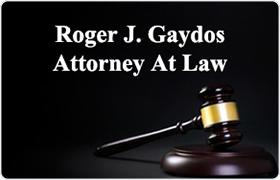ESTOPPEL
(1) A legal principle that prevents a person from asserting or denying something in court that contradicts what has already been established as the truth. equit...
(more...)(1) A legal principle that prevents a person from asserting or denying something in court that contradicts what has already been established as the truth. equitable estoppelA type of estoppel that bars a person from adopting a position in court that contradicts his or her past statements or actions when that contradictory stance would be unfair to another person who relied on the original position. For example, if a landlord agrees to allow a tenant to pay the rent ten days late for six months, it would be unfair to allow the landlord to bring a court action in the fourth month to evict the tenant for being a week late with the rent. The landlord would be estopped from asserting his right to evict the tenant for late payment of rent. Also known as estoppel in pais.estoppel by deedA type of estoppel that prevents a person from denying the truth of anything that he or she stated in a deed, especially regarding who has valid ownership of the property. For example, someone who grants a deed to real estate before he actually owns the property can't later go back and undo the sale for that reason if, say, the new owner strikes oil in the backyard.estoppel by silenceA type of estoppel that prevents a person from asserting something when she had both the duty and the opportunity to speak up earlier, and her silence put another person at a disadvantage. For example, Edwards' Roofing Company has the wrong address and begins ripping the roof from Betty's house by mistake. If Betty sees this but remains silent, she cannot wait until the new roof is installed and then refuse to pay, asserting that the work was done without her agreement.estoppel in paisSee equitable estoppel.promissory estoppelA type of estoppel that prevents a person who made a promise from reneging when someone else has reasonably relied on the promise and will suffer a loss if the promise is broken. For example, Forrest tells Antonio to go ahead and buy a boat without a motor, because he will sell Antonio an old boat motor at a very reasonable price. If Antonio relies on Forrest's promise and buys the motorless boat, Forrest cannot then deny his promise to sell John the motor at the agreed-upon price.(2) A legal doctrine that prevents the relitigation of facts or issues that were previously resolved in court. For example, Alvin loses control of his car and accidentally sideswipes several parked cars. When the first car owner sues Alvin for damages, the court determines that Alvin was legally drunk at the time of the accident. Alvin will not be able to deny this fact in subsequent lawsuits against him. This type of estoppel is most commonly called collateral estoppel.
 x
x

 Roger J. Gaydos, Sr. Canonsburg, PA
Roger J. Gaydos, Sr. Canonsburg, PA Practice AreasExpertise
Practice AreasExpertise

